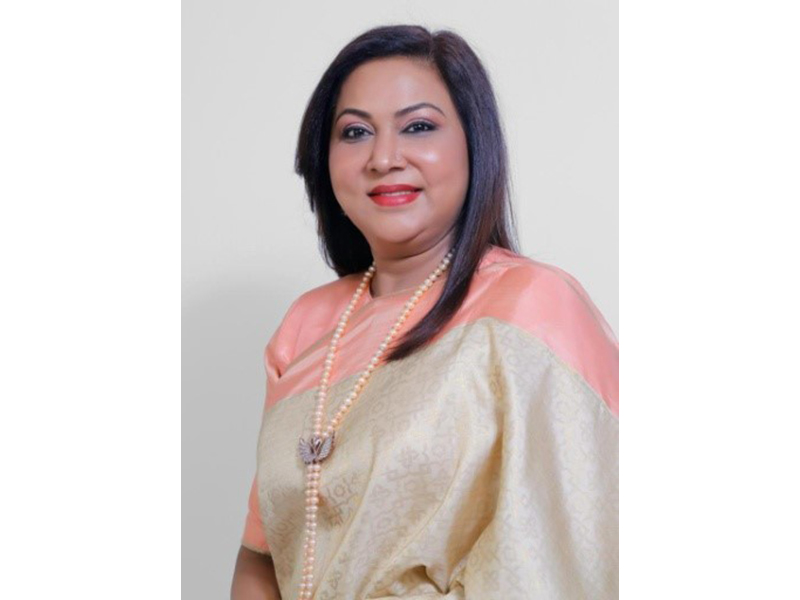No products in the cart.

Experiential Learning for Holistic Education through the NEP 2020 lens

Ms. Gayatri Prakash
Gayatri Prakash is Trustee, Delhi Public School, Vadodara, Harni, Bharuch, Anand, Gurugram; Trustee, Avalon World School, Waghodia, Dabhoi; Member, Governing Council, Delhi Public School, Gurugram; SakaarOutreach, Founder and General Secretary
The National Education Policy (NEP) 2020 was formulated in the context of the challenges presented by the VUCA (volatility, uncertainty, complexity, ambiguity) world we live in, wherein technological and knowledge upheavals and disruptive innovations have forever changed the way human beings live, the way they learn and earn their livelihoods. NEP 2020 advocates the need to develop “life skills like teamwork, cooperation, social skills, courteous behaviour, learning proper communication, being responsible citizens who have respect for diversity and care about sustainability of the planet’s resources”.
For India to flourish in present times, “our teaching-learning system from pre-primary school to higher education level must focus on imparting education in an integrated learning format that creates individuals who have intrinsic reverence for life, who are physically, mentally and morally sound, possess exemplary knowledge and skills in the chosen disciplines, but serving as the treasure of humanitarian values such as compassion and peace, realising the purpose of life and purposeful connections between the local community and natural world and imbibing high ideals and values of our age-old great Indian culture and tradition”. Instead of different subjects being confined to water-tight compartments and assessment that rewards rote memorization, NEP 2020 advocates a flexible curriculum and personalised learning with students choosing subjects suited to their own interests and aptitudes.
CURRICULUM CONTENT. Today everyone has instant access to comprehensive, up-to-date information on almost all subjects, enabled by smart phones and widespread internet connectivity. So the curriculum content can be reduced in each subject to its core essentials to focus on key concepts, ideas, applications and problem-solving to develop critical thinking, spirit of inquiry, a sense of exploration, and engage in discussion and analysis-based learning.
The knowledge and communication explosion in the last few decades, the breathtaking advances in Artificial Intelligence, machine learning and big data, have all transformed what students need to learn and the way they are expected to learn. Rather than a narrow focus on content mastery based on rote learning, students now need to know ‘how to learn’ and extend those learning skills to effectively meet the demands of the job market to earn their livelihoods.
NEP 2020 aims to adopt experiential learning as it enables cognitive, affective and behavioural development. Teaching-learning would become more interactive making the classroom environment congenial for creative, collaborative and exploratory activities that lead to deeper learning. Art and sports integration have been visualised to form the basis for learning of concepts across subjects.
Experiential learning necessitates meticulous planning, patience and strong commitment on the part of teachers and administrators. There are inherent difficulties in enabling experiential learning due to the barriers of language, culture, socio-economic backgrounds of learners and teachers. The learning objectives have to be specified. Feedback and reflection mechanisms must be installed for experiential learning to be a success.
Experiential learning requires enormous planning and coordination between subject teachers and administrators to ensure effective learning and utilisation of resources – human and material. Experiential learning requires teachers to let go of their traditional role as the ‘Sage on the stage’ and become facilitators and mentors who nudge learners to make sense of experiences through active participation, reflection and application of knowledge in different scenarios.
Providing experiential learning experiences to students implies that appropriate training through workshops and refresher courses have been given to teachers that enable them to truly appreciate the benefits of integrating such experiential learning into teaching-learning. Experiential learning needs teachers, administrators and even parents to let go of the urge to complete the syllabus at any cost, sometimes at the expense of meaningful learning! Although completion of the prescribed syllabus for each class is important, it cannot over-ride the necessity for the learner to gain real learning. Quite often, the urge to ‘complete the portions before the examination’ subdues the experiential learning process.
MINDSET SHIFT. A change in mindset and attitude adjustment is essential to weed out the extreme importance attached to marks and grades obtained in assessments and term-end examinations. One mindfully implemented reform measure at a time can pave the way for such a mindset shift on the part of all stakeholders in education. Willingness to accept partial success or even failure must be encouraged and assiduously cultivated for successful implementation of experiential learning in schools countrywide. The extreme aversion to anything that does not fit the accepted standards of success must be overcome through well thought-out strategies and teaching-learning experiences for all.
There is a relentless ‘let us finish everything such that students get the highest marks in the examinations’ approach widely prevalent in Indian education. Such thinking puts paid to all efforts to implement experiential learning in Indian classrooms and needs to be uprooted mindfully. All these would go a long way in ensuring holistic education of children as envisaged in the National Education Policy, 2020.















Add comment